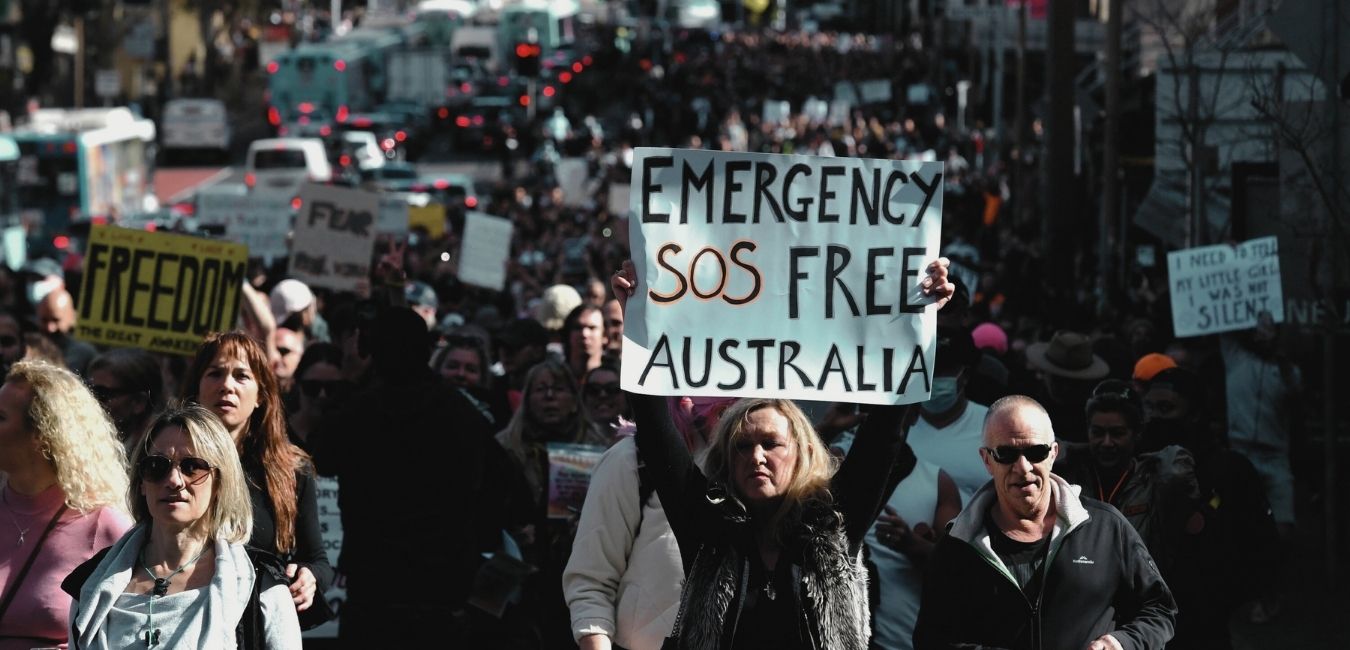Protesting is a public expression or declaration of objection, disapproval or dissent often against the government or corporations.
In New South Wales, the right to protest is protected by the common law’s right to peaceful protest and by the Australian Constitution’s implied freedom of political communication. See background explainer from the Parliamentary Library.
While we have the right to protest, it must always be balanced with what is in the public interest and must factor in public safety. Part 4 of the Summary Offences Act requires mutual co-operation between protesters and Police. Protest organisers need to apply to the NSW Police Commissioner to conduct a public assembly/procession. This allows Police time to organise road closures and resources to ensure public safety and the safety of protesters. You can read the legislation here: Summary Offences Act (NSW), Part 4 – Public assemblies.
New South Wales is well into an extended lockdown, a lockdown that has far exceeded its initial lockdown. Citizens are restless, businesses are on their knees, parents are desperately trying to juggle home schooling with working from home and students are under pressure to perform in a modified HSC.
While it’s only natural that people want to be seen and heard by the Government, to restore their livelihoods and open for business, it is essential that we heed the current health advice. By working together, we can hopefully all be seated around the table at Christmas. For the latest health settings, consult NSW Health.
NSW protest basics: notice, routes and safety
- Notify Police: Lodge a public assembly notice (Form 1) with the NSW Police Commissioner, ideally at least 7 days prior.
- Traffic & road use: If using roads, coordinate traffic control and any road occupancy needs with Transport for NSW / your local council.
- Risk planning: Prepare a simple risk assessment and crowd management plan. See SafeWork NSW resources and business.gov.au event risk guidance.
- Health updates: Check current public health directions via NSW Health before confirming dates.
Frequently asked questions
Do I need approval to protest?
You have a right to peaceful assembly. Notifying Police under Part 4 helps ensure your protest is an authorised public assembly with traffic management and safety in place. Start with the NSW Police public assembly process.
What happens if I don’t notify Police?
Police may issue directions for public safety and traffic management, and you may face enforcement action if unlawful conduct occurs. Notice and cooperation reduce those risks.
Can businesses support protests?
Yes—businesses often assist with logistics such as printing, first-aid, or amenities. Ensure any suppliers are briefed on your safety plan and timings.
For tailored advice on protest rights, public assemblies, or Summary Offences Act issues, speak with our criminal defence team or call (02) 8806 0866.













